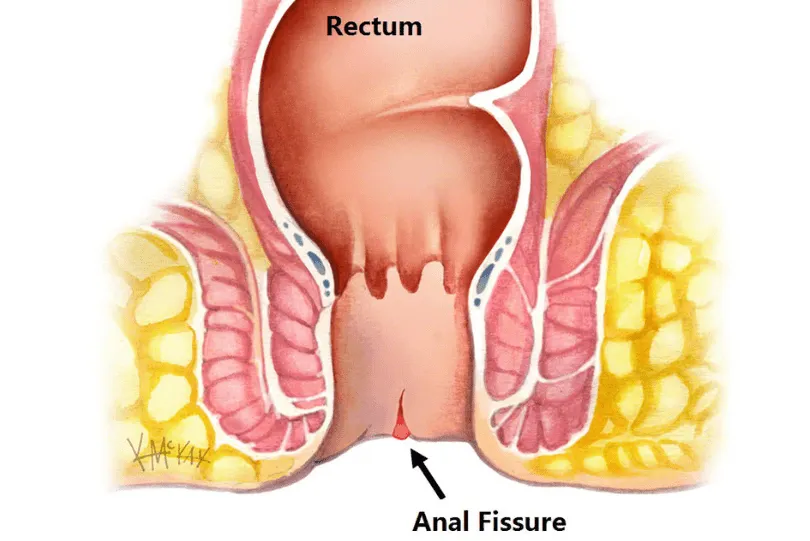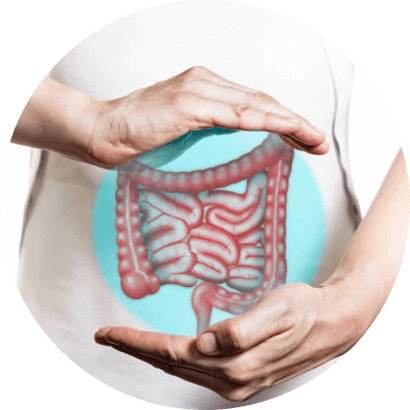
What Is an Anal Fissure?
An anal fissure is a small tear in the lining of the anal mucosa, often resulting from constipation or the passage of hard or large stools. This condition can affect anyone at any age but is more commonly seen in young infants.
Anal Fissure Symptoms
The signs and symptoms of an anal fissure include:
- Pain during and after bowel movements
- Bright red blood on the stools and toilet paper
- A visible tear in the anal canal
- Inflammation and itching sensation
- Constipation
Causes of Anal Fissure
Common causes that lead to an anal fissure include:
- Passing large or hard stools due to constipation
- Chronic diarrhoea
- Vaginal delivery during childbirth
- Crohn’s disease
- Anal cancer
Anal Fissure Treatment
An anal fissure typically heals within a few weeks with proper care. Most cases can be treated with nonsurgical methods; however, if the fissure does not improve or is severe, surgical options may be required.
Nonsurgical Treatments
Your doctor might recommend:
- Increasing fluid intake and adopting a high-fibre diet
- Soaking in warm water (sitz baths) for relief
- Applying topical anaesthetic creams
- Using nitroglycerin directly on the anal sphincter to promote healing
- Taking pain relievers as needed
Surgical Treatments
If you have a severe anal fissure or if nonsurgical treatments fail, your doctor may suggest:
- Anal Dilatation and Botox Injections: This method gently stretches and relaxes the anal muscle, facilitating healing.
- Lateral Internal Sphincterotomy (LIS): This procedure involves cutting a small portion of the anal sphincter muscle to alleviate spasms and pain, promoting healing.
Recovery Period
Post-procedure, your doctor will likely recommend a high-fibre diet and possibly fibre supplements, along with plenty of fluids. Additionally, taking 1-2 sitz baths daily may help improve the healing process.
For more information or to schedule a consultation with Dr. Mouhsen Al Hosein, contact today.
FAQs
What is the difference between an anal fissure and haemorrhoids?
An anal fissure is a tear in the anal lining, while haemorrhoids are swollen blood vessels in the rectal area.
Are anal fissures contagious?
No, anal fissures are not contagious. Physical factors, not infections, typically cause them.
How long does it take for an anal fissure to heal?
Most anal fissures heal within a few weeks with appropriate care, but chronic cases may take longer.
Can stress cause anal fissures?
While stress itself does not directly cause anal fissures, it can lead to gastrointestinal issues that may contribute to constipation or diarrhoea.
What should I avoid during recovery from an anal fissure?
Avoid straining during bowel movements, consuming low-fibre foods, and engaging in heavy lifting or strenuous activities.
Are there any lifestyle changes to prevent anal fissures?
Yes, maintaining a high-fibre diet, staying hydrated, and practising good bathroom habits can help prevent anal fissures.
What should I do if I notice blood in my stool?
If you notice blood in your stool, consult a healthcare professional to rule out severe conditions, including anal fissures.
Is the surgery for anal fissures safe?
Surgical procedures for anal fissures are generally safe and minimally invasive, with a low risk of complications when performed by an experienced surgeon.
BOOK APPOINTMENT


